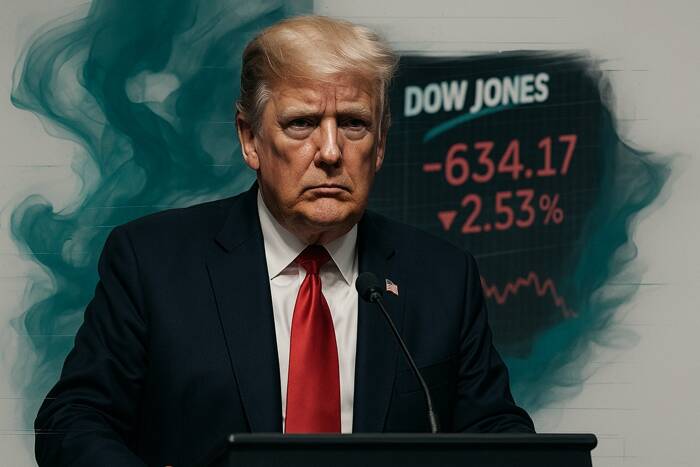Beijing’s Coded Editorials Reveal Big Economic Plans
People’s Daily, the flagship newspaper of the Chinese Communist Party (CCP), launched a carefully timed editorial campaign. For several days, the second page of the paper carried essays under the banner “Special Series on China's Economy Under the Guidance of Xi Jinping Economic Thought” Each of the essays was signed with the pseudonym Zhong Caiwen.
David Feith is a senior fellow at the Hudson Institute. He argues that the U.S. should focus on domestic renewal and deterring China from risking war over Taiwan, rather than trying to transform China into a friendly power. Public trust in America has eroded, and so has its ability to unite around causes.
Dow Jones Slumps, Dollar Dips: Trade War Fears Surge After Trump’s Summit Ultimatum
Both sides had made progress after April's tariff escalation, but Trump's reaction disrupted that momentum. The current 90-day tariff truce expires in mid-November. Without a new agreement, tariffs could spike back to April levels, which would hit critical industries. The U.S. lacks a cohesive trade strategy.
This week China announced major export controls on rare earths and related products. U.S. President Donald Trump promised to impose 100 percent tariffs on all products from China starting Nov. 1. China is using the same rules on foreign direct products that the United States has applied since 1959. The United States is charging additional port fees for ships built …
With Tariff Threat and Trade Controls, China and U.S. Renew Game of Chicken
China tightened export controls on rare earth metals. China's move unnerved governments and businesses in Europe and sparked another round of tit-for-tat trade blows. China added five American subsidiaries of a South Korean shipping company to its sanctions list. On Tuesday, Mr. Trump threatened to cut off U.S. purchases of Chinese cooking oil.
Joel Mokyr is a professor at Northwestern University and a regular Marketplace listener. He recently chatted with David Brancaccio about technological advancements and disruptions. He doesn't share the apocalyptic view of artificial intelligence and he's not worried about it replacing the human race.
Gen Z Protests: How Young People Are Protesting in Madagascar, Nepal and Bangladesh – Podcast
Regina Steffens and Maximilian Sepp speak to colleagues from SPIEGEL about an important topic every day. They explain it briefly and understandably. You can give feedback to them on their Facebook page. i.e. how you like Shortcut.
Philippe Aghion and Peter Howitt’s 1992 paper transformed economics. It explains how innovation creates self-perpetuating growth. It also reveals a devastating vulnerability: the framework depends on innovators capturing returns from their breakthroughs. China's intellectual property theft destroys that mechanism. America's rare earths disaster illustrates how this destroys innovation capacity.
China’s global control over rare earth metals a strategic goal since the 1990s
China's new export controls on rare earth minerals and products made from them reflect a bid to dominate world markets for the strategic materials since the 1990s. China has 80% share of the world’s reserves of 17 rare earth metals. They are used to make magnets and other components needed for missile guidance systems, drone controls and electric vehicles. President …




